What are Blocks
Blocks, in the context of educational toys, are simple yet powerful tools for learning and development. They are designed for children of various age groups, ranging from infants to older kids, and serve as an important medium for enhancing cognitive skills, motor abilities, and creativity. At their core, blocks are about construction and imagination; they are physical objects that can be stacked, arranged, or connected to create a multitude of shapes, structures, or even entire worlds born from a child's vision.
Blocks come in different materials such as wood, plastic, or foam, and they can be as simple as plain geometric shapes or as complex as pieces with interlocking systems. They are universally appealing because they are open-ended resources that allow for endless possibilities and encourage children to think outside the box. As children manipulate these blocks, they learn about spatial relationships, cause and effect, balance, and symmetry. Through play, children learn to solve problems by constructing towers or bridges that stand without collapsing, thereby developing their analytical thinking.
Moreover, playing with blocks is not just a solitary activity; it often involves sharing, cooperation, and communication when done in groups. This interaction fosters social skills and teamwork. For younger children especially, block play is integral to their understanding of the world around them. It helps them to grasp early math concepts like counting, comparing sizes or quantities, and recognizing shapes and patterns. For older children, more complex block sets can introduce principles of engineering and architecture.
Types of Blocks
There's a vast variety of blocks available to cater to different age groups and developmental needs. For instance:
DIY Toy Blocks: These blocks come with the added challenge of assembly which requires following instructions or using creativity to create a specific design. These are often used to enhance problem-solving skills and patience.
Construction Toy Blocks: Emulating the tasks of construction workers, these blocks are larger and designed to be pieced together to form buildings or other structures. They are commonly used in play scenarios that mimic real-life construction projects.
Model Toy Blocks: Similar to model kits, these blocks come in sets intended to build a specific model such as vehicles or buildings. They are perfect for children who enjoy detailed work and following complex instructions.
Educational Blocks: Specifically designed for learning purposes, these blocks may come with numbers, letters or various educational themes. They serve as great tools for introducing academic concepts in a playful environment.
Electronic Toy Blocks: Integrating technology into playtime, these blocks may light up or make sounds when assembled in certain ways. They're excellent for engaging sensory responses and introducing basic electronic concepts.
Cartoon Toy Blocks: These are themed around popular media characters which can increase engagement for fans of the respective shows or movies. They provide an opportunity for imaginative role-playing activities.
Each type of block serves a unique purpose and can be used in various educational settings or simply for entertainment.
How to choose Blocks
Selecting the right type of blocks for your business requires careful consideration of your target demographic and their developmental needs. Here's how to choose the best blocks for your clients:
Age Range: Match the complexity of the block set with the age range it’s intended for. Younger children require simpler blocks for basic hand-eye coordination while older kids may prefer more intricate sets that challenge their cognitive skills.
Material: Consider the durability and safety of materials used in block manufacturing—wooden blocks have a classic feel and are typically sturdy; plastic blocks may offer more vibrant colors and intricate designs; eco-friendly materials appeal to environmentally conscious consumers.
Educational Value: Determine if you want the blocks to have a specific educational focus such as mathematics or language learning. Educational blocks often have letters, numbers or shapes that can assist in academic development.
Play Value: Reflect on how multifunctional the blocks are—can they be used in multiple ways? Do they encourage open-ended play? A higher play value means more creative freedom for kids.
Cultural Relevance: If you're catering to specific local service locations, consider cultural preferences and language options if relevant.
By considering these factors, you can provide a comprehensive block selection that meets various business needs within the educational toy sector.
Best Blocks on Alibaba.com
Alibaba.com stands out as an exceptional marketplace for sourcing wholesale blocks designed for both education and entertainment. The diversity found on Alibaba.com is unparalleled; whether you're looking for DIY toy blocks that help nurture problem-solving skills or electronic toy versions that merge traditional play with modern technology, this platform has it all. The extensive range caters to all age groups from infants exploring shapes and colors to teens constructing elaborate models.
Businesses worldwide trust Alibaba.com due to its vast network of verified suppliers who offer products across a wide array of categories including educational toys like blocks. With an emphasis on flexibility and customization options available through many suppliers on the platform, businesses can tailor orders to meet specific demands and preferences—a crucial aspect when dealing with diverse consumer bases.
Furthermore, Alibaba.com simplifies international trade by providing user-friendly tools that facilitate communication between buyers and suppliers regardless of language barriers or geographical distances. Coupled with Trade Assurance—a service that protects payments until delivery is confirmed—businesses can operate with confidence knowing that quality assurance is a priority on this global marketplace. Choosing Alibaba.com means partnering with a platform dedicated to enriching commerce experiences while providing resources necessary for business growth in the educational toys sector.
Common FAQs for Blocks
What age groups are best suited for block play?
Block play is beneficial for various age groups, with blocks available for children as young as 0 to 24 months, to older kids in the 8 to 13 years range. Choose blocks that are appropriate for the child's developmental stage and complexity level they can handle.
How can blocks be used in educational settings?
Blocks can be an integral part of learning in educational settings. They can help children understand mathematical concepts like counting and geometry, improve motor skills, and encourage creative problem-solving.
What materials are commonly used for blocks, and what should I consider when choosing them?
Common materials for blocks include ABS, plastic, wood, and foam. Consider the durability, safety, and environmental impact of the material when making a choice for your business.
Are there blocks suitable for outdoor play or is it mainly an indoor activity?
While blocks are traditionally associated with indoor play, there are larger construction toy blocks made of durable materials that can be suitable for outdoor play in settings like playgrounds or outdoor classrooms.
Can block sets be customized based on cultural relevance or local service locations?
Many suppliers may offer customization options to cater to cultural relevance or local preferences. This could include language options for educational blocks or themes popular in a specific location.
What safety standards should I look out for when purchasing blocks for my business?
Safety standards vary by region but generally include non-toxic materials, smooth edges to prevent injury, and size specifications to avoid choking hazards for younger children.
How do electronic toy blocks work and what educational benefits do they offer?
Electronic toy blocks may incorporate lights, sounds, or movement to engage children's sensory responses. They can introduce basic concepts of electronics and cause-and-effect relationships.
What are the benefits of using eco-friendly blocks?
Eco-friendly blocks can appeal to environmentally conscious consumers and reduce the ecological footprint of your product offerings. They often use sustainable materials and manufacturing processes.
How does block play support gender-inclusive education?
Block play is universally engaging and supports gender-inclusive education by providing the same learning opportunities without bias. Blocks are typically marketed as unisex toys.
What considerations should be made when choosing blocks for different applicable industries?
Consider the context in which the blocks will be used—whether it’s for a retail space, schools, construction works, or home use—and choose blocks that align with the industry’s needs and standards.
Do any block types come with machinery test reports or certifications?
Some suppliers may provide machinery test reports or certifications for their products. It's important to verify this information to ensure quality and compliance with industry standards.
What key selling points should I focus on when selecting blocks to retail?
Focus on key selling points such as ease of operation for electronic toys, long service life for durable wooden blocks, multifunctionality for educational sets, and high safety levels for all products.
Are there specific features that make certain block types more appealing for commercial sales?
Features such as being eco-friendly, providing educational value, and being stocked items can make certain block types more appealing, especially if they align with your clients' values and needs.
What after-sales services are typically provided with block purchases?
After-sales services vary by supplier but may include online support, video technical support, and engineers available to service machinery overseas. Check with each supplier what services they offer post-purchase.
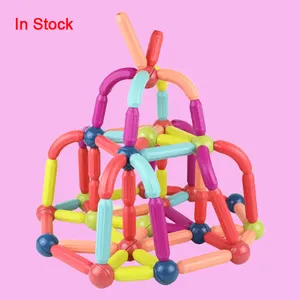








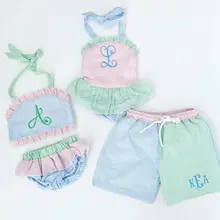

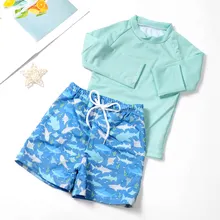



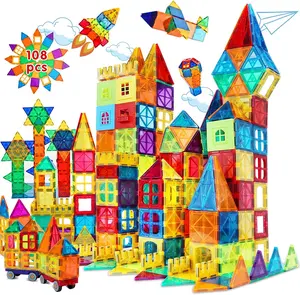


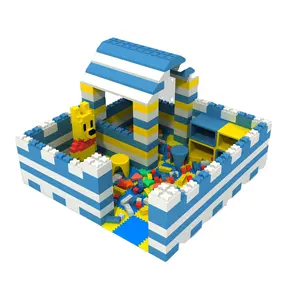























 浙公网安备 33010002000092号
浙公网安备 33010002000092号 浙B2-20120091-4
浙B2-20120091-4